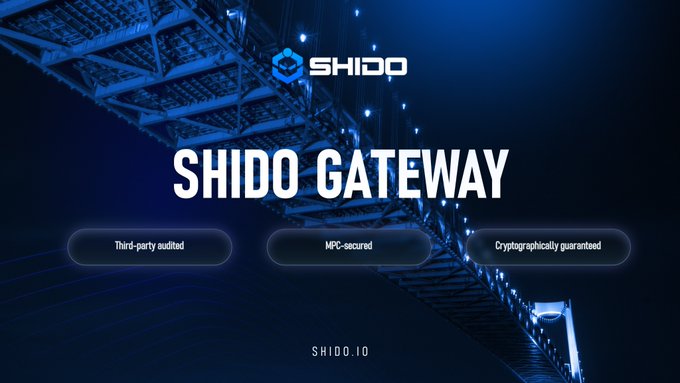Shido Gateway Launches Security-First Bridge Solution Amid $2B+ Hack Losses
Shido Gateway Launches Security-First Bridge Solution Amid $2B+ Hack Losses
🌉 Bridge Security Gone Wrong

Over the past two years, cross-chain bridges have lost more than $2 billion to hacks, highlighting critical security vulnerabilities in existing infrastructure.
The main issues stem from bridges prioritizing speed over security and implementing temporary solutions for interoperability challenges.
Key features of the new Shido Gateway:
- Third-party security audits completed
- MPC (Multi-Party Computation) security implementation
- Trustless mathematical foundation
- Security-first architecture rebuilt from ground up
This development comes as the blockchain industry grapples with mounting bridge security concerns, with total losses exceeding $2.8B in recent years.
$2 billion in bridge hacks over the past two years. That number keeps me up at night. Most bridges fail because they prioritize speed over security, or try to solve interoperability with duct tape and hope. (1/2)
Infrastructure Development Assumptions Shape Web3's Future

Infrastructure development requires making key assumptions about future ecosystem needs. These include: - Gas optimization work assumes more complex dApps will emerge as costs decrease - WebSocket infrastructure development anticipates real-time interactions becoming standard - Security enhancements are built expecting more sophisticated attack vectors These infrastructure choices represent strategic bets on the ecosystem's direction. However, there's ongoing debate about whether infrastructure should be more closely aligned with current application builder needs rather than speculative future requirements.
Testing Philosophy: Balancing Speed and Safety

Our development approach prioritizes thorough testing while acknowledging user demand for quick feature releases. Key principles: - Test extensively until the process becomes routine - Launch only when deployment feels like a natural progression - Keep excitement in feature innovation, not deployment risk This methodology reflects our commitment to balancing rapid development with system reliability. We understand users want immediate access to new features, while developers need comprehensive testing periods. Both perspectives are valid and inform our measured approach.
Shido's Enso Network Upgrade Reaches Quorum, Voting Continues Until Monday

The **Enso Upgrade**, Shido Network's most significant enhancement to date, has achieved quorum through strong community and validator support. The upgrade promises improved network performance through: - Enhanced core modules and consensus layer - Refactored custom-built modules - Updated genesis and state migration - Strengthened security measures **Key Details:** - Upgrade Block: 16,850,000 - Implementation: May 27, 2025, 15:55 UTC - Voting remains open until Monday Community members can still participate in governance through [Shido Governance Portal](http://governance.shidoscan.com)
Enso Network Upgrade Overview

The upcoming Enso upgrade brings significant improvements to the Shido Network across multiple user groups: - **Developers**: 30% gas cost reduction, WebSocket support, enhanced tooling compatibility - **Node Operators**: Streamlined efficiency, updated slashing protocols, reinforced security measures - **End Users**: Reduced finality time, enhanced dApp responsiveness, stronger network assurances The upgrade includes refined consensus mechanisms, upgraded core modules, and improved genesis state migration. Currently in final testing phase with governance proposal pending. [Learn more about Shido](http://Shido.io)
